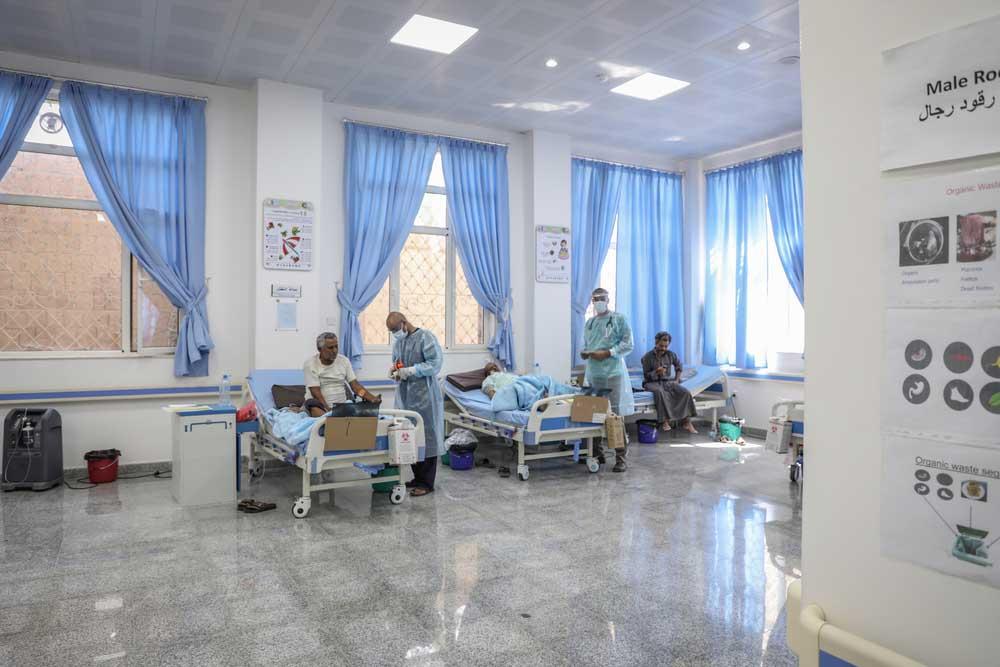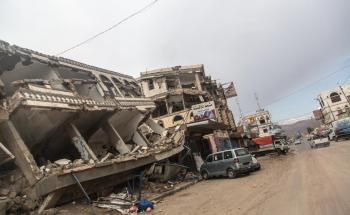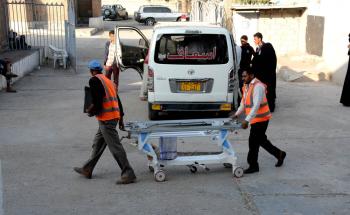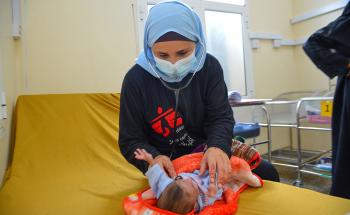One year into the COVID-19 pandemic in Yemen, stigma, disinformation, fear of detention and lack of knowledge on presence of isolation centres continues to deter people from seeking timely treatment for the disease.
"Some patients stay at home for a while after they get symptoms and may arrive in the late stages of the disease. Many are transferred here without oxygen, especially those coming from far places,” says Saddam, Intensive Care Unit Supervisor in the Al Jumhouri isolation centre.
“Therefore, we advise all patients to go to the nearest health centre once they develop symptoms such as fever, cough and difficulty to breath. From there, patients can be transferred to the nearest COVID-19 treatment centres if need for further care,” he adds.
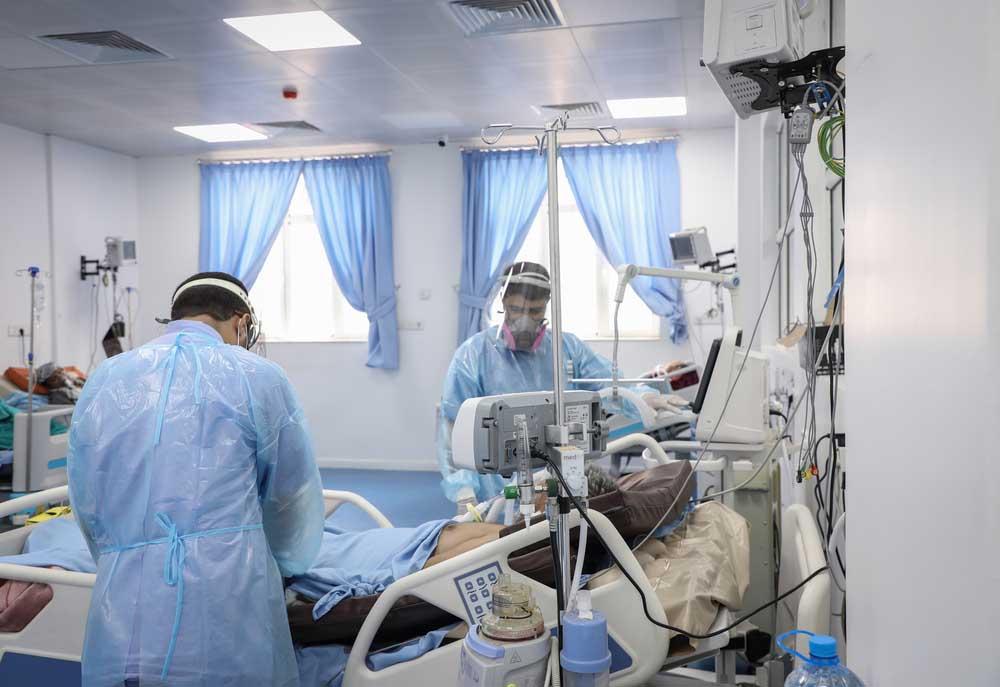
Another issue is the spread of disinformation about isolation centres, as well as fear of stigma. People fear that they will receive lethal injections, or even be detained against their will if they visit a COVID-19 centre. Many patients and caretakers insist on leaving the hospital early, against medical advice, because they fear that the longer they stay, the higher the chances that they may be stigmatized by relatives and friends.
In Yemen there are very few fully functional COVID-19 treatment centres. In other covid treatment centres, the health personnel do often not feel comfortable working without the required protective equipment. Fear of stigmatization hinders the access to the few functional COVID-19 centres.
Muhammad, a patient in Al Jumhouri COVID-19 treatment centre, says that he was not aware about any health facilities in Dhamar governorate, where he lives, that can provide care for COVID-19 patients. Therefore, he had to travel 3 hours to Sanaa. After his recovery, when discharged from Al Jumhouri COVID-19 department, he jokingly tells us, while he stands next to his son at the exit gate, that the team in the COVID-19 center provided him with a quality of care even his sons could not provide to him.
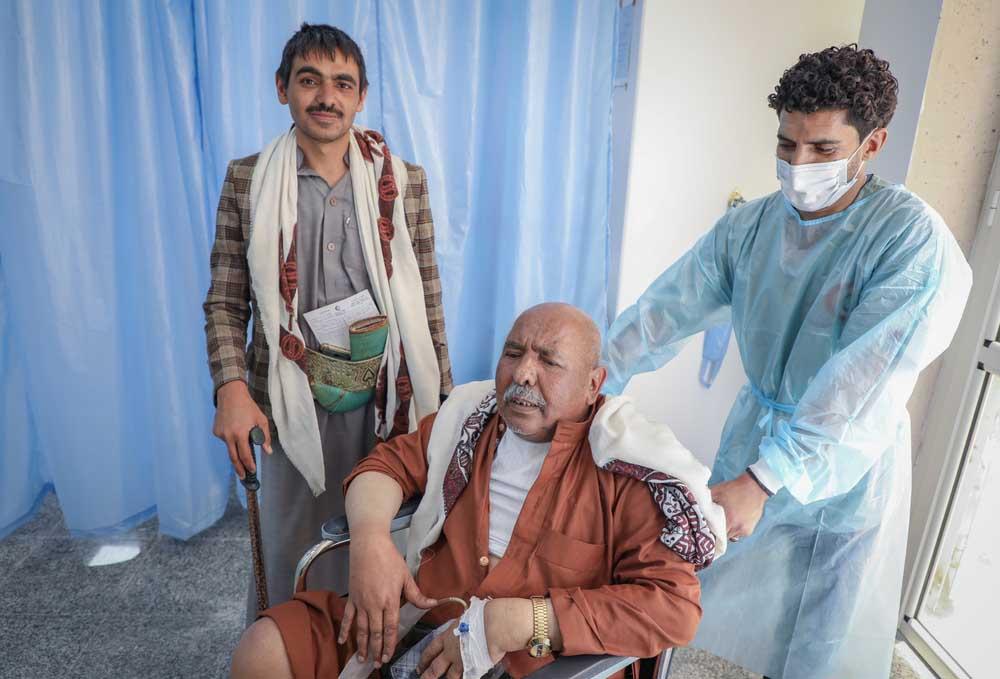
“Patients come to us from the different governorates of Yemen, such as Hajjah, Al Mahwit and Hodeidah – between 3 and 6 hours by car from Sanaa," says Dr Sana, who works with MSF in the COVID-19 treatment centre in Al Jumhouri hospital in Sanaa can only confirm, what our patients are going through before reaching the COVID-19 treatment centre in Al Jumhouri:
The compliance with COVID-19 preventive measures in Yemen is rather low. This could be linked to limited awareness-raising activities for the population, as it is done for other diseases such as Cholera. Another challenge for the community is to identify the severity of the COVID-19 symptoms to seek early care.
MSF is addressing these challenges through health promoters working in the COVID-19 department, but unfortunately, the team is limited to communication within the treatment facility and therefore can’t reach the population fearing to come to the health centre in the first place.
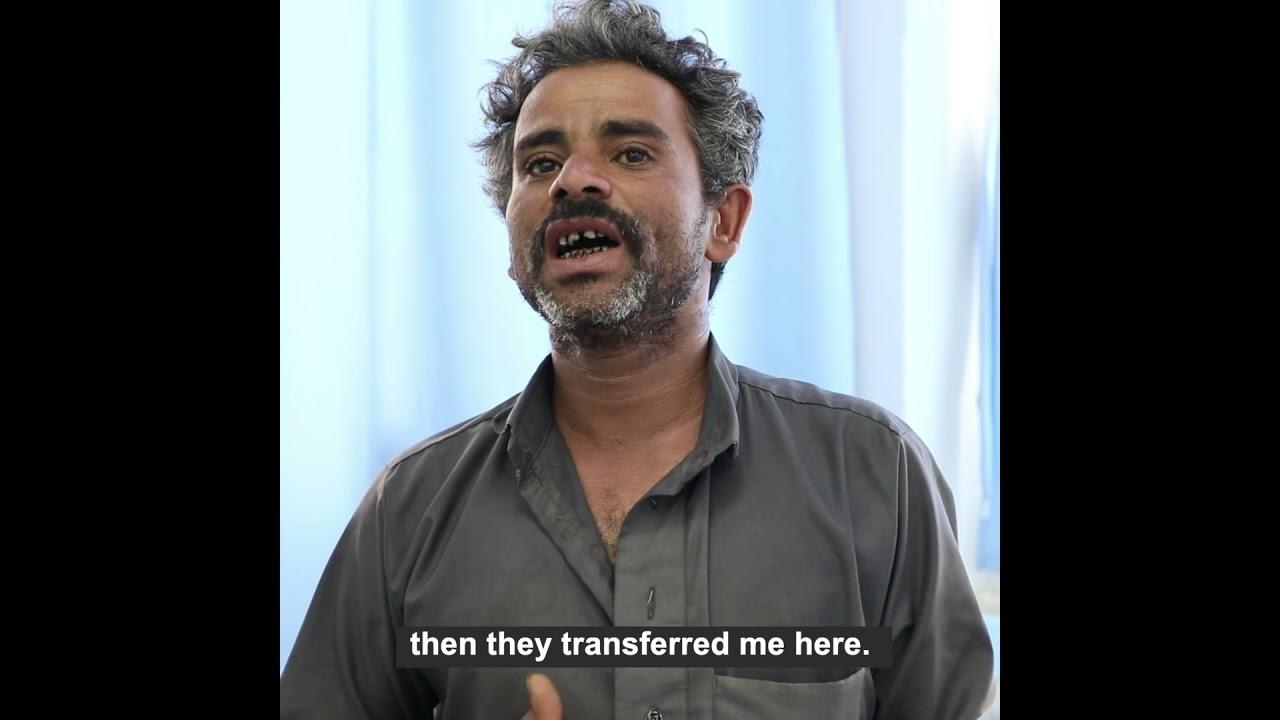
Al Jumhouri COVID Centre, Yemen
The health promoters are key to transmit the knowledge about COVID-19 and address misconceptions and rumours related to this new disease, which has impacted health systems globally. Ebtisam, who has been working as a health promoter in the isolation centre since its opening in April 2021, says: "Despite the difficulties regarding health education related to COVID-19 in Yemen, we are doing our best here in the centre to correct misconceptions about the disease and disseminate information to patients and their companions on how to protect themselves and when and where to receive treatment. We also provide support to patients and build confidence between patients and medical staff to reduce the fear they have, and this is clearly reflected when they leave the centre in good health."
Gilles Grandclement, Project Coordinator for the MSF COVID-19 response in Al Jumhouri Hospital in Sana’a is reminding and encouraging all of us – we are all in this together: “COVID-19 is affecting all of us, it is everyone’s responsibility to contribute to the control of this spreading disease and protect each other from getting it. It’s very important that we apply those very simple hygiene rules, like wearing masks in crowded areas, keeping distance and washing hands. These measures will prevent more infection transmission,” says Gilles.
Please always remember to seek care once you develop cough, fever and difficulty of breathing. COVID-19 treatment centres are specifically developed to provide optimal lifesaving care for COVID-19 patients!
